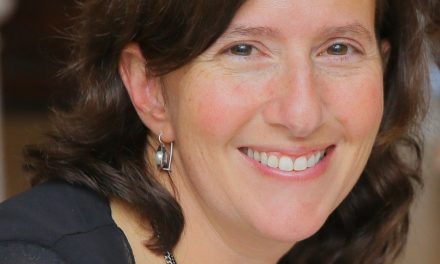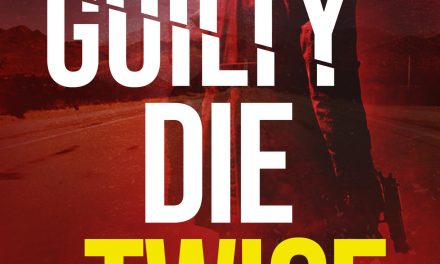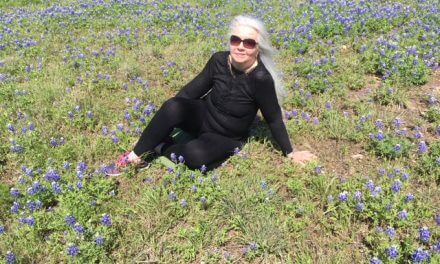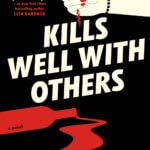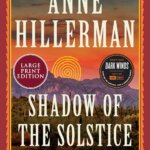Kate Ryder writes romantic suspense in which her characters often face challenging situations laced with moral dilemma.
An avid reader and writer since childhood, Kate always dreamed of being a novelist. However, on leaving school she studied acting, but this only confirmed that her passion lay in writing the words she was having to learn, rather than interpreting someone else’s creations.
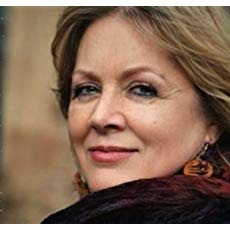
On fast-approaching a certain milestone birthday, Kate decided that if she was ever going to write she had better do it now or not at all, so she joined a creative writing group with the intention of penning short stories. The ensuing outpouring of creative energy reminded her of her original dream. Following a particular exercise during a writers’ workshop, her debut novel, The Forgotten Promise, was born. She subsequently self-published this time-slip romance and mysterious ghost story, and the novel not only gained Kate several loyal fans and five-star reviews, but also was shortlisted for Choc Lit’s “Search for a Star” and awarded a Chill with a Book “Book of the Month.”
In 2015 Kate joined the Romantic Novelists’ Association’s New Writers’ Scheme, graduating in the spring of 2017 when she signed a four-book publishing contract with Aria, the digital imprint of award-winning independent publisher Head of Zeus. Summer in a Cornish Cove—a contemporary, bittersweet, love story set against the ruggedly beautiful backdrop of the Lizard Peninsula in Cornwall—is her first traditionally published novel, and made Kate a nominee for the RNA’s Joan Hessayon award. Its sequel, Cottage on a Cornish Cliff, is a story about acceptance, forgiveness and trying to put things right.
A third novel is scheduled for publication in spring 2019 (the originally self-published novel), and Kate is currently working on her fourth book with Aria, which is due to be published sometime in the autumn.
Still living in that, now fully renovated and comfortable Cornish cottage in the beautiful Tamar Valley, Kate says she is almost mad enough to contemplate taking on another restoration project. Although the thought of living for another three years on a building site may make her think twice!
SS: Kate, why don’t you tell us how you came to be a writer.
KR: I consider that I have always been a writer, but “life” side-tracked me. During early childhood, I would always be found either with my nose in a book or scribbling into a notebook. At school I loved English and found it a naturally easy subject to study, and in my early teens I penned some poetry. But my first love was always more rounded stories, with a beginning, middle and end. I dreamed of becoming a novelist or a journalist, but following a talk with a school Careers’ Advice Officer who, on learning my aspirations, dismissed my desires as mere fantasy and suggested I became a florist(!), I believed it was only ever a pipe dream. When I left school, I attended drama school but soon became frustrated at not having written the plays I was performing. Throughout my ensuing career, which has involved work in several industries, I incorporated writing in various guises, i.e. PR/marketing, proof reading, and copy-editing. However, it was only during a stint as a writer with a specialist newspaper when, bored by the constraints of news-speak, I joined a creative writing group, a decision which has led to this day.
SS: If you were trying to describe your writing to someone who hasn’t read anything by you before, what would you say?
KR: I like to stretch readers’ imaginations and leave them with memories that linger long after the last page has turned.
SS: Khaled Hosseini (The Kite Runner) says that he feels he is discovering a story rather than creating it. Are you a plotter? Or do you let the novel develop organically?
KR: I wrote my first two novels as a pantser. When I wrote Cottage on a Cornish Cliff, the sequel to Summer in a Cornish Cove, I tried to incorporate more of a plotter mind-set. However, once in the flow, my characters had a tendency to go “off-piste,” and I have discovered that even though I may have an understanding of their motives/actions, they, in fact, have other ideas! That is the beauty of writing … when the characters take over and the writer is merely a conduit to their story.
SS: Who is the protagonist in your most recent work? Describe her in ten words or less.
KR: Cara Penhaligon—Talented artist, widow, mother, beautiful soul, natural, free-spirit, God-given light.
SS: Who is the hero of your story? Describe him in ten words or less.
KR: Oliver Foxley—Award-winning actor, world-famous, heartthrob, husband, father, fair, possesses integrity, depressive.
SS: Where is your book set? How did you decide on the setting? When is it set?
KR: The novel is set in present day on the Lizard Peninsula, the southern-most point in Cornwall. Both Cara and Oliver suffer through circumstance, and each seeks solace and comfort from quiet, hidden places. The Lizard provided the perfect setting—wild and out of the way—in which they could find themselves and each other.
SS: What is the central conflict? Mark Rubenstein says, “Without chaos, there’s very little story to tell.” What is the source of chaos in your story?
KR: Oliver and Cara first meet in Summer in a Cornish Cove, when Oliver rejects a role in the next sure-fire blockbuster to take the lead in a play by an unknown writer touring Cornwall for the summer. Married for over twenty years and father of four children, Oliver meets Cara and experiences powerful, all-consuming, love at first sight. Following the death of her young husband and childhood sweetheart, Cara is staring into the abyss and her love for Oliver is slow-burning but growing in intensity. However, Oliver is a man with a high moral code, and he knows he made his bed many years before. At the end of the book he has to make the most difficult of choices.
SS: According to F. Scott Fitzgerald (The Great Gatsby), a novel is never really finished but only abandoned. How does this apply to your own work?
KR: I totally agree with this. In fact, when I finished writing Summer in a Cornish Cove, I knew Oliver and Cara’s story wasn’t over. In my mind it continued. However, it was only when readers and reviewers begged me not to leave the story where it ended that I realised I had to share their continuing story.
SS: Do you hear from your readers much? Where do you interact with them the most? What kinds of things do they say?
KR: I keep in touch with my readers mainly via Facebook and Twitter. I have made many connections this way with people all over the world and it’s amazing how the “six degrees of separation” theory has proven true!
SS: What’s something memorable you’ve heard from your readers/fans? What’s the best—or worst—thing they’ve ever said?
KR: The most memorable thing I have heard from a reader/fan was the time when a reviewer considered me an author! “Kate Ryder is one of my all-time favourite authors. These two books I could read over again and again and still feel that special magic that only a really good book has.” Michelle Russell, NetGalley.
The best compliment was this, from a fellow RNA author. “Cottage on a Cornish Cliff—the sequel to Summer in a Cornish Cove—and it was well worth the wait. Cara is easily one of my favorite characters of the year, and I’m so glad that Kate was able to bring her back.” Mick Arnold, NetGalley.
SS: If you could have been the original author of any book, what would it have been and why?

KR: Frenchman’s Creek, by Daphne du Maurier, which I first read when I was fifteen. I consider this the quintessential Cornish novel. Not only did the author create the most passionately bittersweet romance in English Literature but also she combined it with an all-action, swashbuckling adventure. She wrote Dona, Lady St. Columbas a strong woman, out of her time; something that I suspect Daphne understood only too well. I can still remember the ending to this day, and I recall rewriting it as the actual one was just too painful to bear! Since then, I have become acquainted with the Helford River, as I have friends who live on the river just west of Frenchman’s Creek. We have entered the hidden creek by boat and experienced its peaceful and timeless atmosphere. It’s easy to see why the author chose this particular setting in which to hide the French pirate’s ship, La Mouette, from the authorities. In fact, Frenchman’s Creek even gets a mention in Cottage on a Cornish Cliff!
SS: How do you feel about the relationship between love and marriage?
KR: The landscape of love enjoys many different contours and hidden views, and I don’t believe that marriage automatically follows. It’s not important for my main characters to “tie the knot.” However, as a writer of romance (although I believe I am more a “romantic suspense” writer with all its darker shades), the genre demands a Happy Ever After. Summer in a Cornish Cove doesn’t give the reader that HEA, but the reaction to the novel, begging me to put things right, presented me with the opportunity to write a sequel. This, in itself, was a huge learning curve. Cottage on a Cornish Cliff can be read as a standalone novel, though it would give the reader a deeper understanding of what the main characters are facing if they read the first in this two-book mini-series beforehand.
SS: What role does consent and the #MeToo movement play in your writing?
KR: When I wrote Summer in a Cornish Cove, I wanted it to be a true-to-life story, not one with the sugar-coating of “popular” romantic novels of today. Subsequently, the book touches the outermost boundaries of where mainstream romance novels take the reader. In Summer in a Cornish Cove, we get to know Oliver as not only a married man facing moral dilemma because of his all-consuming feelings for Cara, but also as a world-famous actor aware of the possible long-reaching repercussions from his actions not only to him, but also his family. Even though Cara realises their love has nowhere to go, she is a naturally free-spirit and her life is not quite as bound and rigid as his.
I followed the true-to-life aspect into the sequel, Cottage on a Cornish Cliff. However, on reading the first draft, my editor suggested I tone down various aspects due to the #MeToo movement, which I did.
SS: Diana Gabaldan’s Outlander series seems to have brought about a new interest in time travel. What sparked your desire to write a time-travel novel? Would the story have been any different without the time travel?
KR: My third book with Aria is a novel set in another glorious part of the UK—Dorset. It is a contemporary romance played out against a mysterious ghost story, which has the heroine time-slipping to the dangerous days of the English Civil War. I’ve always been interested in the possibility of great love leaving a vibration across the centuries, and I definitely believe in old houses retaining memories. The seed was sown for this novel one cold, winter’s day at a country market while I waited for customers. I’d come to know a fellow trader as a woman with a down to earth attitude, so I was surprised when she told me (in a matter of fact way) about a cottage she once owned on Dartmoor, which she had shared with a ghost. Apparently, during the years she lived in that cottage, she regularly witnessed an apparition moving from behind a stained-glass screen in her living room and disappearing through the wall on the opposite side. Well, that’s all I needed for my creative juices to kick in! At the time I was a member of the South Dornaford Writers’ Group and I penned a short story from this golden nugget. When I finished reading it to my fellow aspiring writers, a sea of expectant faces peered up at me and demanded to know what happened next. I can tell you, I was so fired up that the words just flowed. It was the quickest book I have ever written! The story is all about choices and having the courage to follow one’s true path. It would definitely have been different without the time travel element; a simplistic 2D version of the book without any shading or shadows.
SS: Who’s your favourite paranormal boyfriend? Why?
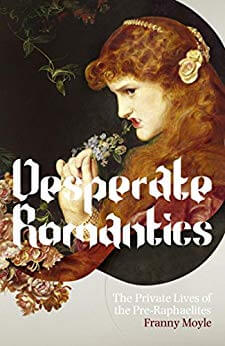

KR: That’s easy! Mitchell from Being Human. Aidan Turner plays the most glorious-looking, sexy vampire. I have followed Aidan’s career with interest, from the first time I set eyes on him (without knowing who he was) when he was cast in the Pre-Raphaelite period drama, Desperate Romantics, as the poet and artist, Dante Gabriel Rossetti. The writing in Being Human is deep and nuanced, and the characters are beautiful; the relationships emotional and honest. The character of Mitchell allowed Aidan to demonstrate his growing talent for angst and heartfelt emotion, and here it is again—that recurring theme of mine—a character grappling with moral dilemma. Unusual for a vampire to possess such a trait … apart from, of course, Edward Cullen in the Twilight series!
********************
Summer in a Cornish Cove and Cottage on a Cornish Cliff are available through:
Amazon | B&N


